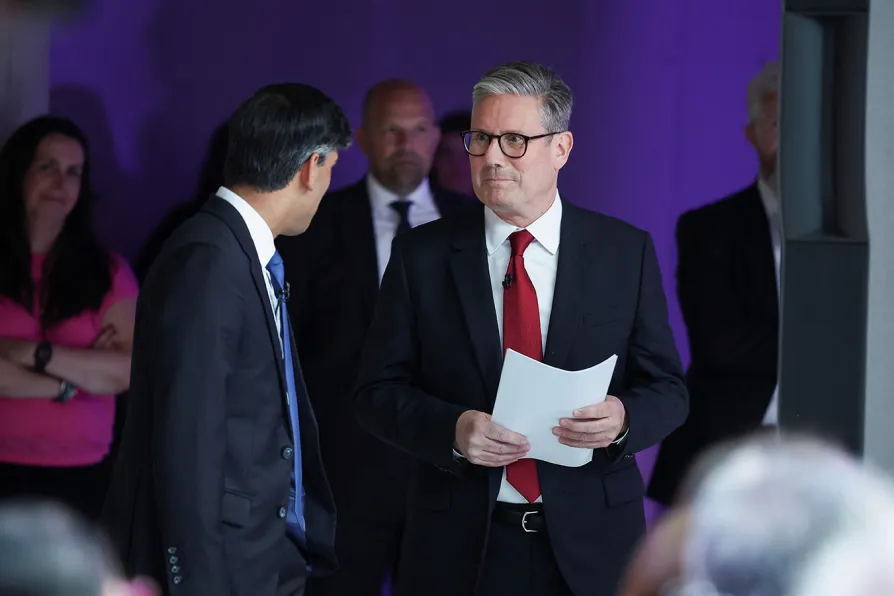Labour prospects in May elections may be irrevocably damaged by Birmingham Council’s costly refusal to settle the year-long dispute, warns STEVE WRIGHT

 Starmer and Sunak arrive for their BBC debate in Nottingham
Starmer and Sunak arrive for their BBC debate in Nottingham
A FOOTNOTE that the socialist historian EP Thompson made to his A Psessay in Ephology about the 1959 general election, though over 60 years old, does seem to capture quite well the relation between the media, leaders debate and opinion polls currently: “A psephologist is a man employed by the mass media to research into what people think the mass media has told them to think. An ephologist is a man employed by the Observer or BBC to interpret the results of psephology and who makes an ephing good thing out of it.”
Polling outfit Ipsos has published an MRP poll which shows the current break down of support in each constituency. For those who want the Tories out its good news. There is a Labour landslide coming with even hard-right figures like Robert Jenrick, Suella Braverman and Liz Truss not safe.
The headlines generated by such polls often come with brief if unexplained historical references. For example, the Tories are set to win fewer seats than at any election for over 100 years.
Meanwhile the projected Labour majority could be one of the largest the party has ever achieved. Sir Keir Starmer goes on constantly about his changed Labour Party but it is not a new approach. Very similar wording was used by Tony Blair in 1997. By “change” of course he means that he has purged much of the left from Labour. Purging voters is more difficult.

Who you ask and how you ask matter, as does why you are asking — the history of opinion polls shows they are as much about creating opinions as they are about recording them, writes socialist historian KEITH FLETT

Research shows Farage mainly gets rebel voters from the Tory base and Labour loses voters to the Greens and Lib Dems — but this doesn’t mean the danger from the right isn’t real, explains historian KEITH FLETT

KEITH FLETT traces how the ‘world’s most successful political party’ has imploded since Thatcher’s fall, from nine leaders in 30 years to losing all 16 English councils, with Reform UK symbolically capturing Peel’s birthplace, Tamworth — but the beast is not dead yet











